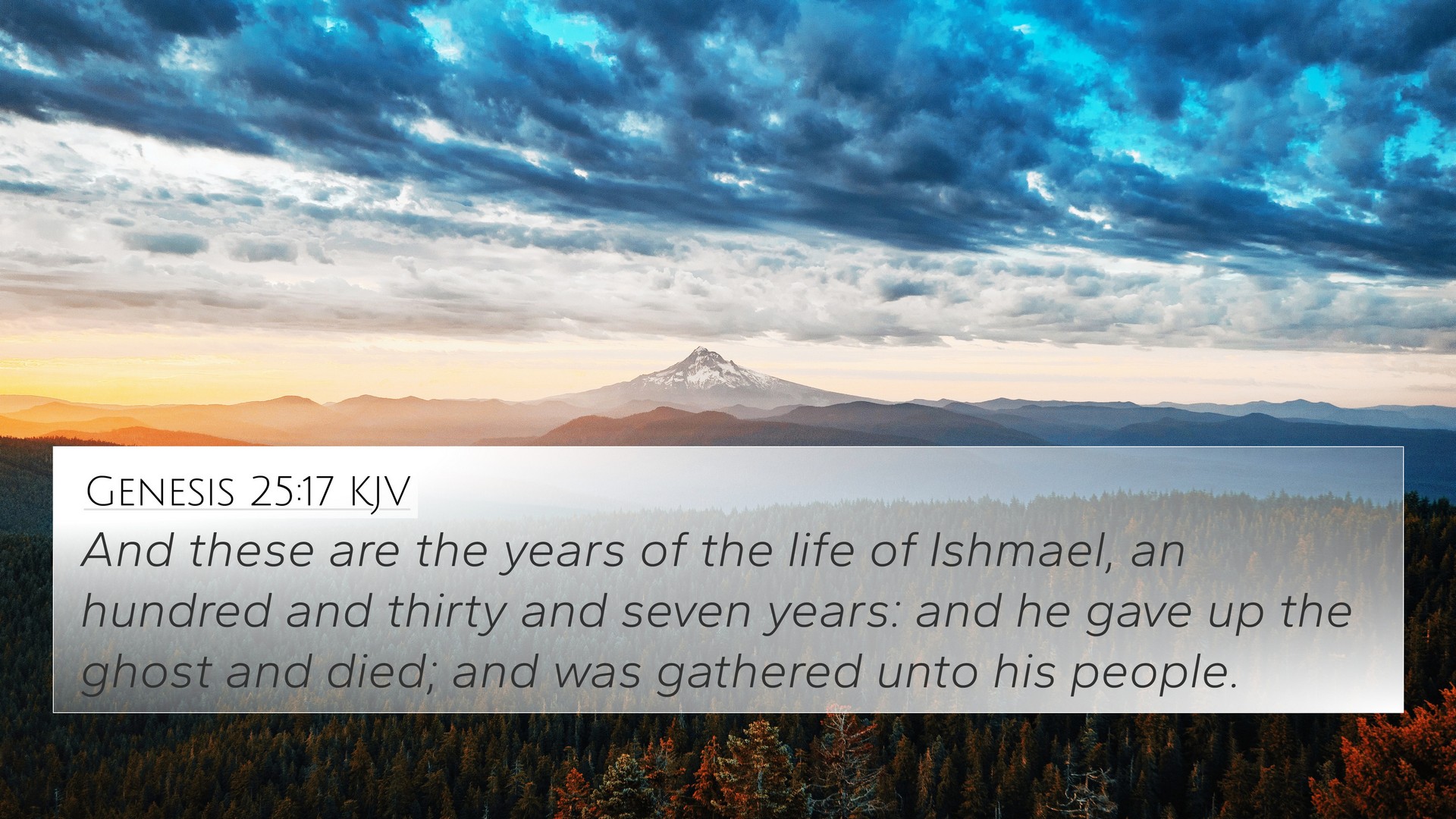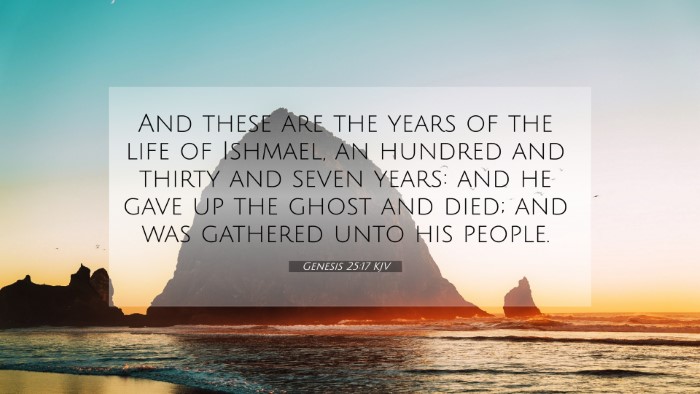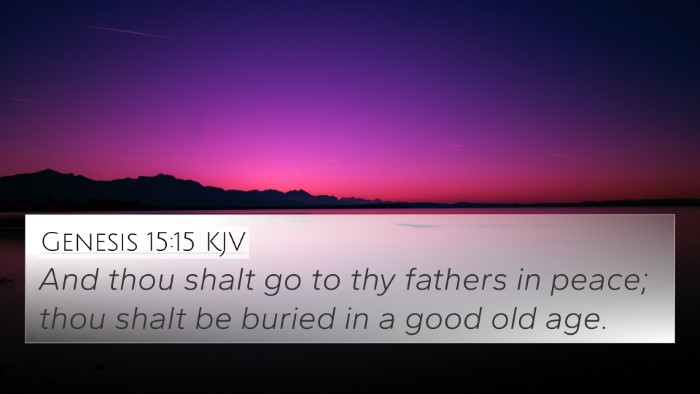Understanding Genesis 25:17
Genesis 25:17 states: "And these are the years of the life of Ishmael, a hundred and thirty-seven years: and he breathed his last, and died; and was gathered unto his people."
Overview of Genesis 25:17
This verse concludes the account of Ishmael, the son of Abraham and Hagar. It provides a brief summary of his lifespan and his eventual death. The phrase "gathered unto his people" suggests a belief in an afterlife where he is reunited with his ancestors. With this context, it emphasizes the fulfillment of God's promise regarding Ishmael's lineage.
Commentary Insights
Matthew Henry's Commentary
Matthew Henry emphasizes the significance of Ishmael's life and legacy. He notes that Ishmael was blessed with a substantial life span, indicating God's care over him despite being cast away from Abraham's household. Henry draws attention to the contrast between Ishmael and Isaac, suggesting that God's promises unfold uniquely for different descendants.
Albert Barnes' Notes
Albert Barnes highlights the importance of Ishmael's life in the biblical narrative. He suggests that Ishmael's experiences symbolize the struggles of nations descended from him. Barnes points out that Ishmael's death signifies the end of an era, reiterating the importance of genealogies and the themes of divine providence in their lives.
Adam Clarke's Commentary
Adam Clarke notes the cultural implications of Ishmael's death and his burial. He explains the phrase "gathered unto his people" within the context of ancient customs where the deceased were placed among their ancestors. This commentary suggests a continuity of family and identity that transcends physical death, a theme present in many biblical narratives.
Bible Cross-References Related to Genesis 25:17
- Genesis 17:20: God's promise regarding Ishmael's future.
- Genesis 21:14: The sending away of Hagar and Ishmael.
- Genesis 16:11-12: God's prophecy about Ishmael's life and nature.
- Genesis 25:12: Ishmael's genealogy and descendants.
- Genesis 28:9: The mention of Ishmael's descendants in relation to Isaac’s descendants.
- Galatians 4:22-31: Paul’s allegory of Ishmael and Isaac, relating to law and grace.
- Hebrews 11:13-16: The faithful who died without receiving the promises, reflecting on life beyond death.
Thematic Connections in the Bible
The life and death of Ishmael open up various connections within the Biblical texts. Themes of promise, providence, and lineage underscore the narrative of Genesis, where God's plans for individuals include not only the prominent figures but also those in the background. Exploring the connections between Ishmael’s life, his descendants, and how they carry God's promises is critical in understanding inter-biblical narratives.
Comparative Analysis
When comparing Genesis 25:17 to other scriptural passages, one can see significant parallels that explore themes of legacy, identity, and divine purpose across generations. The connections drawn through cross-references allow for a deeper understanding of how the Old Testament informs the New Testament narratives, particularly in discussions of inheritance and legacy.
Tools for Bible Cross-Referencing
Utilizing tools like a bible concordance or bible cross-reference guide can assist in finding and studying these thematic links effectively. Implementing cross-referencing bible study methods can lead to enlightening discoveries about the ways scripture dialogues with itself across different texts.
Conclusion
In summary, Genesis 25:17 not only marks the conclusion of Ishmael's life story but also invites readers to explore broader biblical themes surrounding inheritance, the fulfillment of promises, and the nature of life after death. By engaging in comparative Bible verse analysis, one can glean deeper insights into the interconnectedness of scripture, fostering a richer understanding of God's overarching narrative throughout the Bible.




